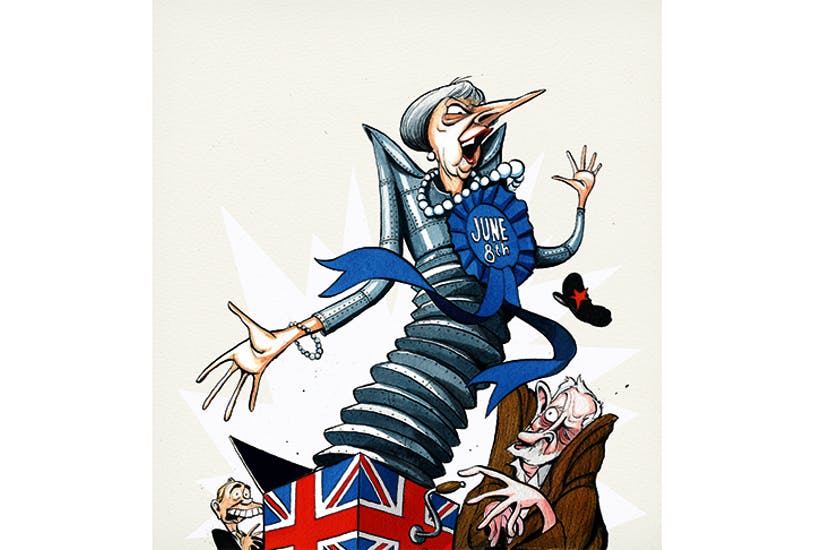Two days into the election campaign, and the polls are already jaw-dropping. The latest You Gov has the Tories on 48 percent, 24 points ahead of Labour—and that’s before the Tory attack machine has gone to work on Jeremy Corbyn.
Now, there is a chance that the Tory lead is being exaggerated by the methodological changes that the pollsters made after underestimating the Tories in 2015. But talk to pretty much any MP on either side and they’ll say that Theresa May is remarkably popular and Jeremy Corbyn the opposite.
There are, as I say in the cover this week, risks to this early election for Theresa May. But two great prizes are within her—and the Tories’—grasp. First, they have a chance to reunite the right. Not since 1992 have the Tories polled more than 40 percent in a general election. That is in large part because of voters on the right drifting away from the party because of the European issue. But the Brexit referendum resolved that question and it is a Tory government that is now taking Britain out of the EU. With Ukip in chaos post-referendum and with a leader who lacks Farage’s appeal, May has a chance to heal this fracture on the right and give the Tories a 40 percent electoral base again.
At the same time, Brexit and Jeremy Corbyn’s leadership have given her an opportunity to shatter the traditional Labour voting coalition. May can make inroads with a large chunk of Labour’s patriotic, working-class base who won’t fancy voting for the party now it is led by a man who courted the IRA as they killed British soldiers and who calls Hamas and Hezbollah his friends. Her ‘third way’ between nationalism and globalism, with its emphasis on making globalisation work for those who feel left behind, gives her more of an appeal to these voters than any Tory leader this century.
If May can reunite the right and break up Labour’s traditional electoral coalition, then the gamble of an early election will have paid off handsomely for her and the Tories. May will have ushered in a new era of Tory dominance.







Comments